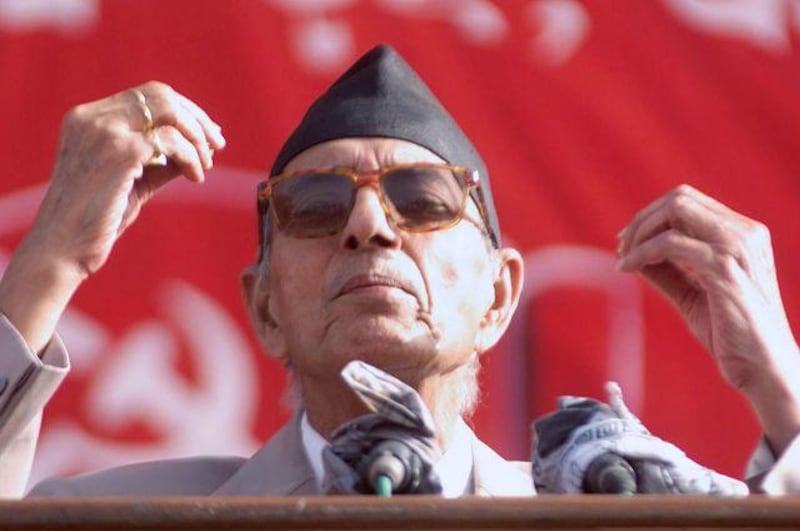When Girija Prasad Koirala was appointed prime minister in Nepal in 1991, the first of five occasions, he became more than an unusually popular politician in a country where politicians were generally held in deep disregard. The first democratically elected leader of Nepal since 1959, when his brother BP Koirala and his Nepali Congress Party had swept to power, he was regarded as one of the founding fathers of democracy in the Hindu kingdom.
He came to stand as a symbol of profound change in a country that had suffered from the absolute rule of King Gyanendra. During his long career, Koirala witnessed the monarchy stripped of its powers before being abolished altogether, and made his final exit from politics just as Nepal was declared a republic. "Today is the day when my dreams have been realised," he said in May 2008 when the king was told to vacate his palace.
So strongly did Koirala come to personify stability in notoriously unstable Nepal that he was prevailed upon to return again and again to a position of authority, despite his increasing age and infirmity. Assuming power for the last time at 81, the chain-smoking PM led the country back towards a precarious democracy. If it did not last, it was not for want of his personal efforts. Up until his death, Koirala was trying to secure a new constitution. Acting as a peace broker, he met with leaders from different parties, including the Maoists who had entered electoral politics after waging a decade-long civil war, in his attempt to resolve the political impasse in the negotiations.
Born in 1925 in Bihar, Koirala came from a political background. His Nepalese father, an activist who supported Mahatma Gandhi, was exiled frequently in India for his beliefs and died a political prisoner in a Nepalese jail. Koirala's two brothers would both serve as prime minister before him: BP Koirala, a key democratic leader, was the founder of the Nepali Congress Party, and Girija worked in the Congress party organisation as head of the youth wing.
As early as March 1947, aged 22, he organised a strike in a jute mill in the border town of Biratnagar and acted as one of the leaders of the column that captured the town when the India-based Nepali Congress party launched its armed movement in November 1950. As his father before him, he was jailed for campaigning for democracy, spending seven years in prison in the 1960s. Perhaps the most dramatic event during his political career was the massacre of King Birendra, Queen Aishwarya and other members of the royal family by a drunken Crown Prince Dipendra in 2001. Though his government was not implicated, it was already riven with infighting and blame for security lapses fell on Koirala, while the army's refusal to follow his order to intervene and release 69 policemen abducted by the Maoists, led to his resignation.
By 2005, King Gyanendra had seized control of the administration and Koirala was placed under house arrest. Later that year, he reached an agreement with the Maoists in Delhi. The next year, public pressure forced the king to reinstate the dissolved 1999 parliament, and Koirala became prime minister once again. Of his achievements during his final term, one of the more significant was to bring Maoist rebels to the negotiating table to sign a peace agreement in 2006.
Though there were accusations of corruption among his ministers and the suggestion of government involvement in a bribery scandal linked to the national airline and Austria's Lauda Airlines, Koirala was never personally proven accountable. Recently, the Nepalese government had nominated him for a Nobel Prize for his role in resolving the Maoist conflict. Girija Prasad Koirala was born on February 20, 1925, and died on March 20. He was predeceased by his wife, Sushma, and is survived by his daughter Sujata and son Suresh.
* The National






